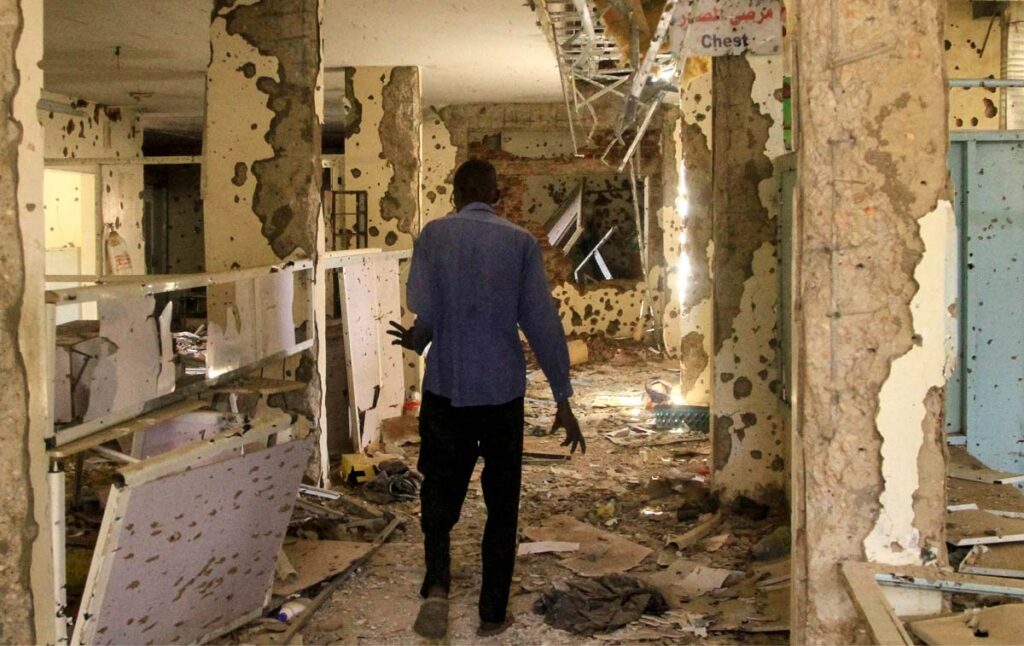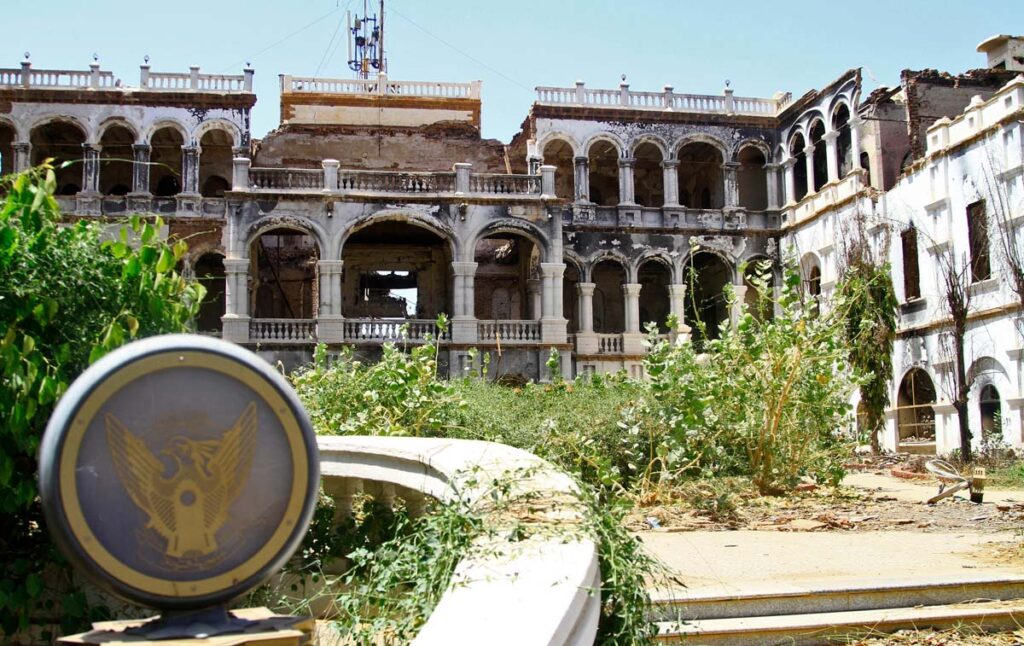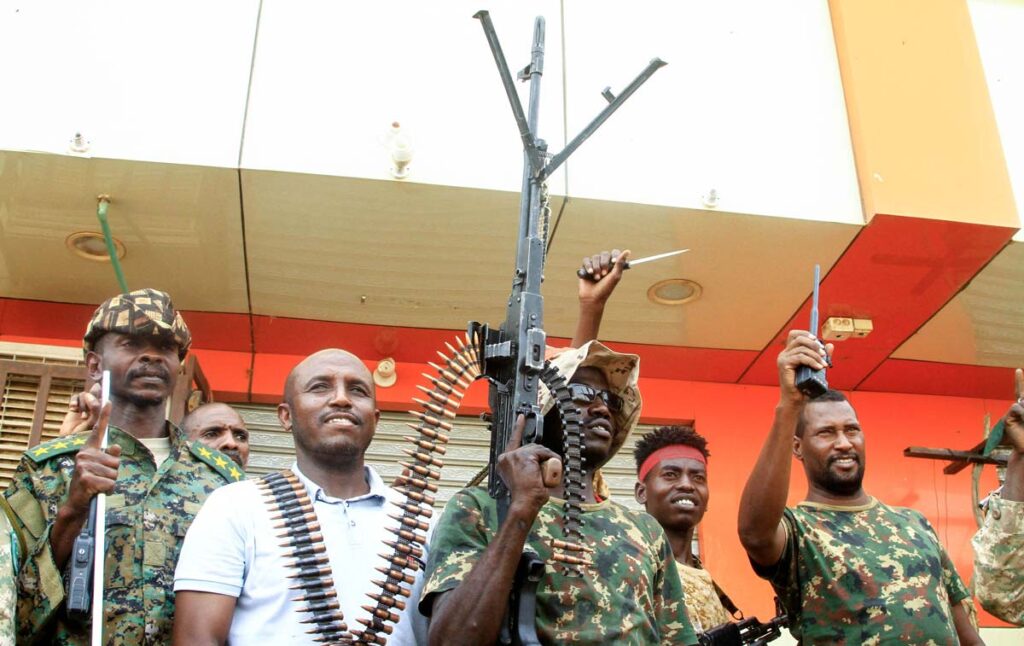When the war erupted in Sudan on April 15, 2023, it was assumed that the African Union (AU) would provide essential leadership and press the two factions, the Sudanese Armed Forces (SAF) and the rival paramilitary Rapid Support Forces (RSF), to cease military operations and allow unhindered humanitarian access. Unfortunately, the war continues to rage as Sudanese civilians bear the brunt of the conflict.
In a statement issued by the United Nations Secretary-General António Guterres in April this year, he demanded renewed focus and an end to weapons flowing into Sudan, stressing the plight of civilians.
“Two years into a devastating war, Sudan remains in a crisis of staggering proportions, with civilians paying the highest price,” he said. “We must renew our focus on finding an end to this brutal war.”
The AU has initiated various interventions, guided by the continental body’s Master Roadmap on Silencing the Guns in Africa, for resolving the conflict, adopted by its Peace and Security Commission at a summit convened to discuss the situation in Sudan on 27 May 2023.

Six elements outlined in the AU roadmap include the establishment of a coordination mechanism to ensure all efforts by regional and global actors are harmonised and impactful; an immediate, permanent, inclusive, and comprehensive cessation of hostilities; and an effective humanitarian response. Other elements in the roadmap include protection of civilians and civil infrastructure, a strategic role for neighbouring states and the region, and the resumption of a credible and inclusive political transition process.
But increasingly, there are questions about the effectiveness of the AU response in terms of leadership, coordination, and proactive engagement in addressing the civil war and humanitarian crisis in Sudan.
Maram Mahdi, a researcher for the African Peace and Security Governance Programmes at the Institute for Security Studies, based in Addis Ababa, Ethiopia, describes the proliferation of peace processes and lack of coordination among different initiatives as “a failure” that has allowed the warring parties to “forum-shop” while the humanitarian crisis intensifies. The AU, for example, has created three mechanisms, including the High-Level Panel on Sudan, the Ad Hoc Presidential Committee, and the Expanded Mechanism for the Resolution of the Sudan Crisis.
“The AU should use its position to integrate and harmonise peace efforts,” she told Africa in Fact. “The AU Roadmap for the Resolution of the Crisis in Sudan, created before the ad hoc committee and high-level panel, should be revised and updated to mandate the various initiatives with a clear division of labour under a single African umbrella.”
Kidane Kiros, a senior Fellow at the Policy Center for the New South, agrees that fragmented peace processes are one of the key obstacles to resolving the crisis.
“The prospects for peace and security in Sudan and its impact on the Horn region depend on whether the African Union, within the framework of its conflict prevention and resolution mechanism, can effectively spearhead and consolidate the stalled peace initiatives into an all-inclusive AU process,” he said.

Concerns exist that the AU moved to establish new structures and policies instead of coordinating and collaborating with humanitarian actors.
Elizabeth Sirengo, a researcher and coordinator for the African Peace and Security Governance Programme at the Institute of Security Studies, argues that the Sudan situation has exposed the AU’s weak response to humanitarian crises.
“The continental body should focus on coordinating and collaborating with humanitarian actors, rather than creating new structures and policies,” she told Africa in Fact.
In February, the 2025 Statutory Political Meeting of the African Governance Architecture (AGA) – African Peace and Security Architecture (APSA) Platform hosted a high-level panel discussion on Sudan. The panel discussed the status of the crisis, highlighting the need to coordinate the efforts of the various actors involved in peace processes, including AU organs and institutions, regional economic communities (RECs), and regional mechanisms (RMs).
The speakers at the AGA-APSA Platform reiterated the need for relentless and coordinated efforts to mobilise support. In particular, Ambassador Marie-Antoinette Rose Quatre, chief executive officer of the African Peer Review Mechanism (APRM), called for better coordination. Similarly, Lawrence Korbandy, the Intergovernmental Authority on Development (IGAD) Special Envoy on Sudan, urged concerted and synergised efforts among the AU, its organs, and RECs.
The need for coordination has been a rallying call. In a statement delivered at the briefing of the United Nations Security Council on 12 November last year on the situation in Sudan by Ambassador Amar Bendjama, Algeria’s permanent representative, he urged the AU to improve coordination to tackle the crisis effectively.
“The coordination of these efforts must remain our common objective, while preserving the central role of the United Nations and African Union,” said Bendjama, speaking on behalf of the A3 Plus Group, a coalition of African nations – Algeria, Guyana, Mozambique, and Sierra Leone – that actively engages with the UN Security Council.

Some analysts have pointed out that external interventions and the presence of foreign actors complicate Sudan’s security situation, making it more difficult to end the war and exposing the AU as weak. There are concerns, for example, that nine days after the war broke out in Sudan, it was a United States and Saudi Arabian-led negotiation, and not the AU or an African leader, that secured a ceasefire.
However, that ceasefire, which Sudan’s warring factions agreed to, did not last, and the Jeddah Declaration of Commitment to Protect the Civilians of Sudan, signed by both parties, has never been implemented. Subsequent truces, mediations, and declarations, including the IGAD quartet, have all failed to result in tangible outcomes. Now in its third year, the war rages on.
Concerns remain that external actors are fuelling the Sudan crisis. In April last year, for example, top UN and AU officials warned the Security Council that the war in Sudan was “a crisis of epic proportions”, urging the world to rethink how it could support the Sudanese people.
Rosemary DiCarlo, the UN Under-Secretary-General for Political and Peacebuilding Affairs, has blamed external actors for the war. “The rival armies have been able to keep fighting in no small part thanks to the material support they receive from outside Sudan,” she said. “These external actors continue to flout the Council’s sanctions regime to support a political settlement and to fuel the conflict.”
Kiros agrees with DiCarlo. “Because of the influence of numerous geopolitically significant factors, the Horn of Africa has increasingly become a stage for international and regional competition and rivalry over strategic interests and concerns,” he said.
Ken Opalo, an associate professor at Georgetown University, agrees that external actors are prolonging the war and complicating potential avenues to a peaceful settlement. However, he says a strong AU would fend off external actors.
“So, before discussing the geopolitics of the conflict in Sudan, it’s worth highlighting the failures of the African Union and other regional organisations. Whether individually or collectively, African states have proven time and again that they cannot perform the most basic function: protecting African lives in the region and abroad,” said Opala.
To bring an end to the conflict in Sudan, the AU must demonstrate the competence required to advance peace and security, taking swift and constructive action to promote that end. In particular, the AU must provide leadership, help prevent duplication, and enhance cooperation between peacebrokers. Equally important, the AU must address the root causes of the conflict as well as those factors, particularly external interference, that are fuelling the war.

Raphael Obonyo is a public policy analyst. He’s served as a consultant with the UN Department of Economic and Social Affairs (UNDESA). An alumnus of Duke University, he has authored and co-authored numerous books, including Conversations about the Youth in Kenya (2015). He is a TEDx fellow and has won various awards.



